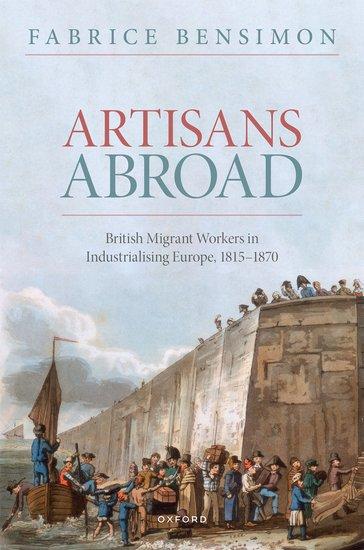
Zustellung: Sa, 07.06. - Fr, 13.06.
Versand in 2 Wochen
VersandkostenfreiBestellen & in Filiale abholen:
Between 1815 and 1870, when European industrialisation was in its infancy and Britain enjoyed a technological lead, thousands of British workers emigrated to the continent, where they played a key role in several sectors, like textiles, iron, mechanics, and the railways throughout the Industrial Revolution.
Inhaltsverzeichnis
- Introduction
- 1: 'Taking their labour and art to the best market': The Political Economy of British Emigration to the Continent
- 2: 'The three pricipal manufactories at Paris are conducted by Englishmen': The Sectors of Workers' Emigration
- 3: The Gender of Migration: Women, Children, and Textiles across the Channel
- 4: 'Not one of us [...] is able to speak more than a few words of the language': Language, Cultural Practices, and Religion
- 5: 'Driven from his native land to seek employment under a foreign despotism': Associations, Unions, and Continental Chartism
- 6: 'A bas les Anglais!': Integration and Rejection
- Conclusion
Produktdetails
Erscheinungsdatum
16. Mai 2023
Sprache
englisch
Seitenanzahl
302
Autor/Autorin
Fabrice Bensimon
Verlag/Hersteller
Produktart
gebunden
Gewicht
680 g
Größe (L/B/H)
231/163/36 mm
ISBN
9780198835844
Entdecken Sie mehr
Bewertungen
0 Bewertungen
Es wurden noch keine Bewertungen abgegeben. Schreiben Sie die erste Bewertung zu "Artisans Abroad" und helfen Sie damit anderen bei der Kaufentscheidung.










